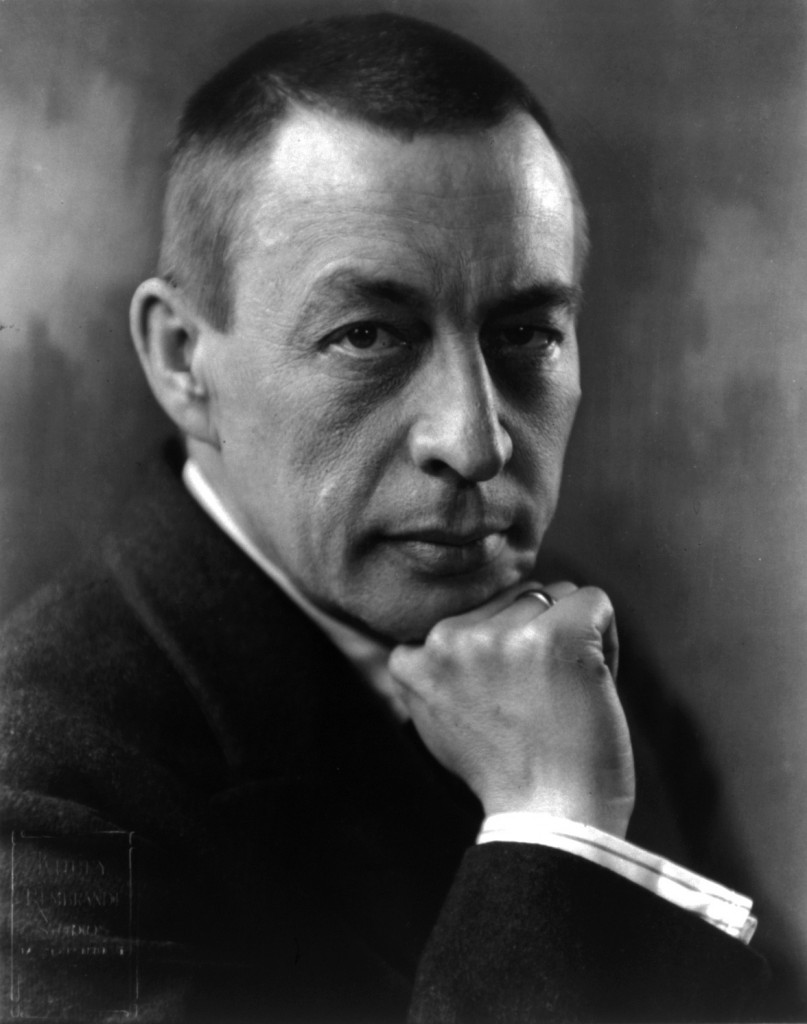Cantata Singers reveal another side of Rachmaninoff in “All-Night Vigil”

Sergei Rachmaninoff’s “All-Night Vigil” was performed by the Cantata Singers Saturday night in Wellesley.
On Saturday night, the Cantata Singers gave fans of Sergei Rachmaninoff another reason to love his music.
In All-Night Vigil, a setting of hymns and responses from the Eastern Orthodox liturgy for chorus a capella, the famed exponent of piano pyrotechnics and small-r romantic melodies proved to be also a profound and moving explorer of Russian music’s ecclesiastical roots.
In so doing, he shed light on the traits that are so attractive about his more familiar concert music: the strong, sinuous melodies that move up and down the scale, the glowing triadic harmonies, the emotions that run deep in the Russian soul.
In historic Orthodox practice, the all-night vigil would last till dawn, and the choral music would be interspersed with readings, prayers, and sermons. Saturday’s performance at Wellesley College’s Houghton Chapel–ably led by the group’s music director David Hoose–posed an even greater challenge to the singers than staying up all night: to sing almost continuously and on pitch for over an hour, maintaining focus on a complex vocal texture that might divide into as many as eleven parts.
Each chorus member deserves some of the credit for the group’s sustained navigation of the work’s fifteen movements on Saturday night, accomplished with only a few discreet pitch checks along the way.
But attention must focus on director Hoose, because an a capella chorus depends on its leader not just for tempos and cues, but for an exchange of energy and moral support beyond anything known in orchestral conducting. If the Cantata Singers delivered the goods on Saturday, it was because Hoose did.
What they delivered was anything but what the casual Rachmaninoff enthusiast might expect. If Verdi could be accused of setting the Latin Requiem Mass as an opera libretto, no one would call this All-Night Vigil a piano concerto with words.
Instead, the composer tapped into a Russian sacred choral tradition whose sturdy counterpoint and massed voices sound as ancient as the Volga River itself, but in fact were only a little over a hundred years old when Rachmaninoff took them up.
According to Harlow Robinson’s informative program notes, monodic chant was indeed a feature of Orthodox worship going way back, but those lusty harmonizations began only in the late 18th century, when the chants were first written down in Western notation.
Rachmaninoff’s All-Night Vigil is now itself exactly 100 years old, having been composed during two weeks in January 1915. At 41, the composer was already a celebrated pianist, conductor and author of symphonies, concertos and operas. Not a churchgoer himself, he nevertheless felt the need to contribute, like his idol Tchaikovsky, to his nation’s spiritual life in music.
Before undertaking the All-Night Vigil, Rachmaninoff studied the various streams of traditional chant and consulted authorities on church liturgy and music. The resulting work made a profound impression at its premiere in wartime Moscow in March 1915, and remained in demand until the anti-religious Bolshevik Revolution of 1917 consigned all such music to the desk drawer.
In this score, Rachmaninoff set himself limits of church decorum that precluded extremes of tempo, instrumental-style virtuosity, or pictorial text-setting. What is remarkable is how much variety and imagination he poured into music that nearly always moved with the moderate, free rhythm of speech-like chant. (Eight of the fifteen movements, in fact, have no bar lines in the score, but spin out in a continuous, unmetered stream.)
The chorus cast a crepuscular spell in the work’s first six movements, which together constituted the evening service, or Vespers. (The entire Vigil is sometimes referred to, not quite accurately, as “Rachmaninoff’s Vespers.”) Their sound brightened for the concluding Matins, in which the rising sun is accompanied by news of the risen Christ.
Applying the customary yardsticks of choral performance, one noted that any deviation from true pitch was quickly remedied, and while this reviewer can’t judge the singers’ pronunciation of Church Slavonic, their diction was clear enough to allow a listener to follow along in the program’s transliterated text.
And let’s give a special shout-out (or growl-out) to the bass section’s many descents into the cellar of their range, the resonant Cs and B-flats thought to be the exclusive territory of Russian basses, but not on this night.
Almost exclusively a choral piece, the All-Night Vigil resorted to solos rarely and briefly. Tenor Stephen Williams and bass Shelby Condray gave the invocation in the opening “Come, Let Us Worship,” and alto Kim Leeds was a solid prima inter pares as the celebrant in the following movement, “Bless the Lord, O My Soul.”
Thereafter, Williams soared over his colleagues from time to time, most notably as the fervent, clear-toned soloist in the fifth movement, “Lord, Now Lettest Thou Thy Servant Depart in Peace,” a setting the composer thought highly enough of to ask that it be performed at his funeral. (It wasn’t, unfortunately.)
But the night belonged, to an extent concerts rarely do, to the composer himself and his ever-flowing invention, to which chorus and conductor gave selfless service. As the last melismas swirled to a quiet close, the sun seemed to rise on another revelation, a Rachmaninoff we didn’t know we knew.
The next concert by the Cantata Singers will be works for chorus and orchestra by Mozart, Haydn, and Beethoven, 8 p.m. March 20 at New England Conservatory’s Jordan Hall. cantatasingers.org; 617-868-5885.
Posted in Performances




